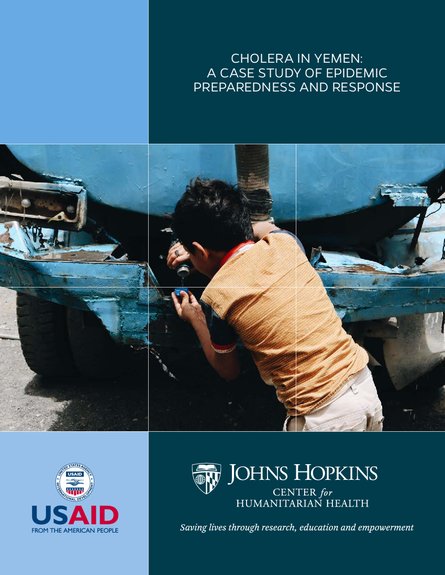
In 2015, the United Nations (UN) declared Yemen a Level 3 (L3) emergency. On September 28, 2016, a large-scale cholera outbreak began. Between April 27, 2017 and July 1, 2018, more than one million suspected cases in two waves were reported. In the last decade, several large-scale and high mortality cholera outbreaks have occurred during complex humanitarian emergencies including in Iraq, Somalia, and South Sudan. While the issues of “what to do” to control cholera are largely known, context-specific practices on “how to do it” in order to surmount challenges to coordination, logistics, insecurity, access, and politics, remain. During the Yemen cholera outbreak response, questions arose concerning how to effectively respond to a cholera outbreak at a national scale during an existing L3 emergency. The Office of U.S. Foreign Disaster Assistance (OFDA), supported by the Department for International Development (DFID) and the European Civil Protection and Humanitarian Aid Operations (ECHO), provided funding to the Johns Hopkins Center for Humanitarian Health for an unsolicited proposal for a case study of the response.
The main objective was to identify lessons from September 28, 2016 to March 2018 (i.e., from the preparedness and detection phase to the end of second wave) to better prepare for future cholera outbreaks in Yemen and similar contexts. The methods included: literature reviews of global cholera guidance, cholera and other outbreak management in complex humanitarian emergencies and fragile states, and documents relating to the outbreak in Yemen; interpretation of surveillance data; and, key informant interviews (KII) with practitioners, donors, and technical experts involved in the response.
